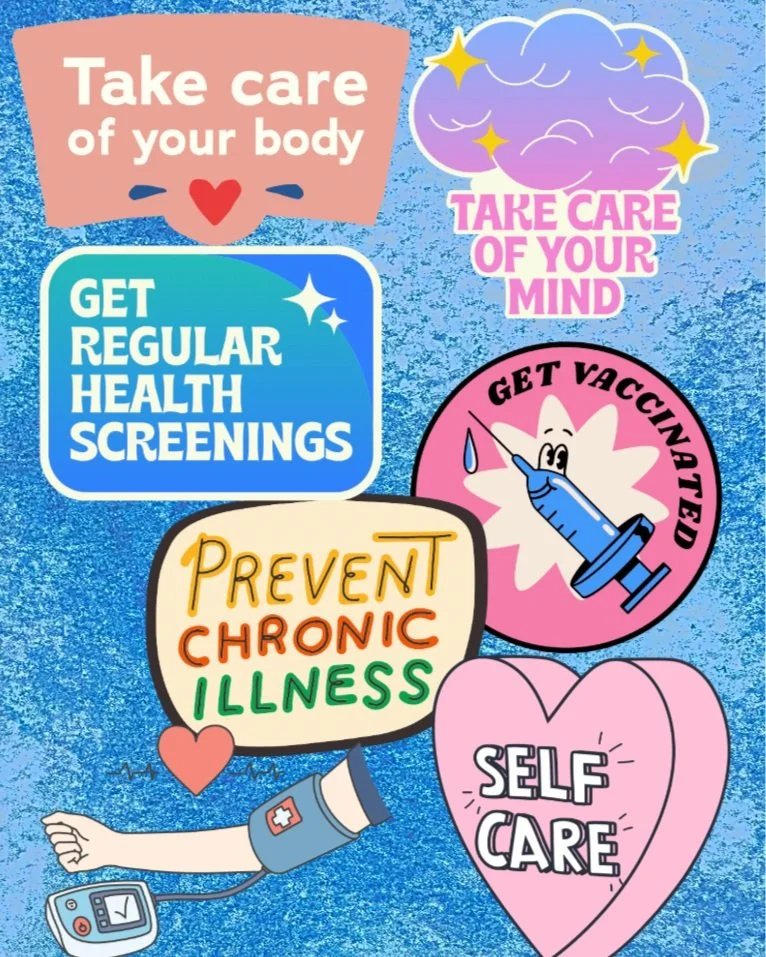Primary Care from Infancy to Adulthood
As a primary care provider for you and your family, I aim to build a healthcare relationship built on connection and respect.
I am here for your routine and ongoing health promotion needs, such as checkups and vaccines, as well as when you’re feeling sick or other health challenges occur. And whether we are seeing each other for a well visit or to address a medical concern, I believe that providing excellent care takes time.
Devoting more time to each visit allows for connection, listening, and a thorough assessment of your healthcare concerns and what preventive health measures are recommended for keeping you healthy. I will partner with you to create treatment plans that are evidence-based, realistic, and work with your lifestyle, priorities, values, and culture.
-
~ At our yearly preventive care visits, we will discuss health promotion measures and preventive care screenings that are appropriate to your age and health history. I am always happy to go over the recommendations and how they apply to you, risks and benefits, and hear/talk about any concerns or questions you may have.
~ Some of these preventive measures can be done during our visit, such as vaccines, blood work, STI testing, and screening for cervical cancer (“pap smears” and HPV testing). For preventive measures I don’t do in the office, such as full nutrition counseling, colonoscopies and mammograms, I will provide you with a prescription or referral and review your results with you at our next appointment.
~ Our ongoing healthcare partnership also includes treating and monitoring chronic health issues, such as type 2 diabetes, high blood pressure, and depression. We will work together to decrease your symptoms and risks, preventing the complications that can happen when these problems are left untreated and maximizing your health and quality of life.
~ Not feeling well? Have a health concern you’d like to discuss? Need a vaccine or a health form completed? Reach out! Telehealth and in-person visits are available to meet your healthcare needs.
-
Prenatal pediatric visits for expectant parents are a great opportunity for us to get to know each other. This visit can include:
~ Learning more about you and your health, environment, and family culture.
~ Answering your questions about newborn care, my practice, or other concerns.
~ Going over prenatal and family history
~ Counseling about newborn care and safety
~ Counseling on nutrition and infant feedings
~ Lactation initial assessment and counseling, if applicable
-
Welcome to the world, baby!
~ Our newborn visit will happen in the first few days of your baby’s life. At this first visit I’ll look over the paperwork from the hospital or midwife and ask you about the pregnancy, birth, and how things have been going so far. This includes hearing about feeding, baby’s diaper output (pees and poops), sleep, home environment and support, and of course how the parents are doing as well! Baby’s measurements and the newborn exam (a full head-to-toe assessment of baby) complete the picture.
~ All of the above and getting to know your family’s feeding goals and preferences allow me to provide individualized guidance on feeding. As a Nurse Practitioner and Lactation Counselor this can include breastfeeding/chestfeeding support, guidance on bottle feeding, creating a pumping plan, counseling on giving suppement (formula or expressed milk) at the breast/chest, or combinations of these as appropriate.
~ We will also talk about sleep, expected changes in baby’s diaper output, safety measures, and anything else you have questions about.
~ Timing of the next few visits will be individualized to your baby, situation, and preferences. For some, we may want to follow up in a few days or the following week, and for others it may wait for a 2 week or even a 4 week visit.
~ The recommended well-infant visit schedule also includes a visit at 1 month, 2 months, 4 months, 6 months, and 9 months. These visits include checking on your baby’s growth, development, and overall health; answering your questions and providing guidance for the months ahead; and vaccinations recommended to protect your baby from illness.
(I recommend following the schedule endorsed by the CDC . I am happy to discuss why, and to address/answer concerns or questions you may have)
~ Is baby not feeling well? Do you have a health question or concern you’d like to discuss? Reach out! Telehealth and in-person visits are available to meet your baby’s healthcare needs.
-
~ As we move into toddlerhood, the well child visit schedule slows down, with visits at 1 year, 15 months, 18 months, 2 years, and 2.5 years. At age 3, we transition to yearly wellness visits.
~ Routine primary care wellness visits are an opportunity to reconnect, catch up on how everything’s been going since our last visit, and for parents and children to share concerns and ask questions.
~ Well Child Visits also include assessing growth, development, and general health. At some visits we will do age-appropriate screenings, such as more formal developmental screenings, checking hearing and vision, and a blood tests for lead levels and anemia.
~ Each visit includes discussing upcoming milestones and counseling on health promotion such as safety measures, nutrition, activity, and a review of the immunization record to see what vaccines, if any, are due.
~ Is your child not feeling well? Do you have a health question or concern you’d like to discuss? Reach out! Telehealth and in-person visits are available to meet your family’s healthcare needs.
-
~ In adolescence our yearly wellness visits continue along a similar pattern, taking time to reconnect, assess health, growth, and development, and to do age-appropriate screenings, counseling, and health promotion measures.
~ Adolescence is the time of gradual transition from childhood to adulthood, and a similar shift in teens’ roles in their own health and relationship to their primary care provider. At each adolescent visit I ask the parent to step out briefly so that your teen and I have time one on one to check in on topics that might be embarrassing or uncomfortable for teens to talk about in front of their parents. This strengthens connection and trust, and empowers young people to engage in their own healthcare as they grow into adulthood.
~ Is your teen feeling unwell? Have a health concern they or you would like to discuss? Need a vaccine or a health form completed? Reach out! Telehealth and in-person visits are available to meet your family’s healthcare needs. As your teen becomes more independent, they can come in or do a telehealth visit on their own if that is preferred or more convenient. (Parental permission needed for some types of visit).









